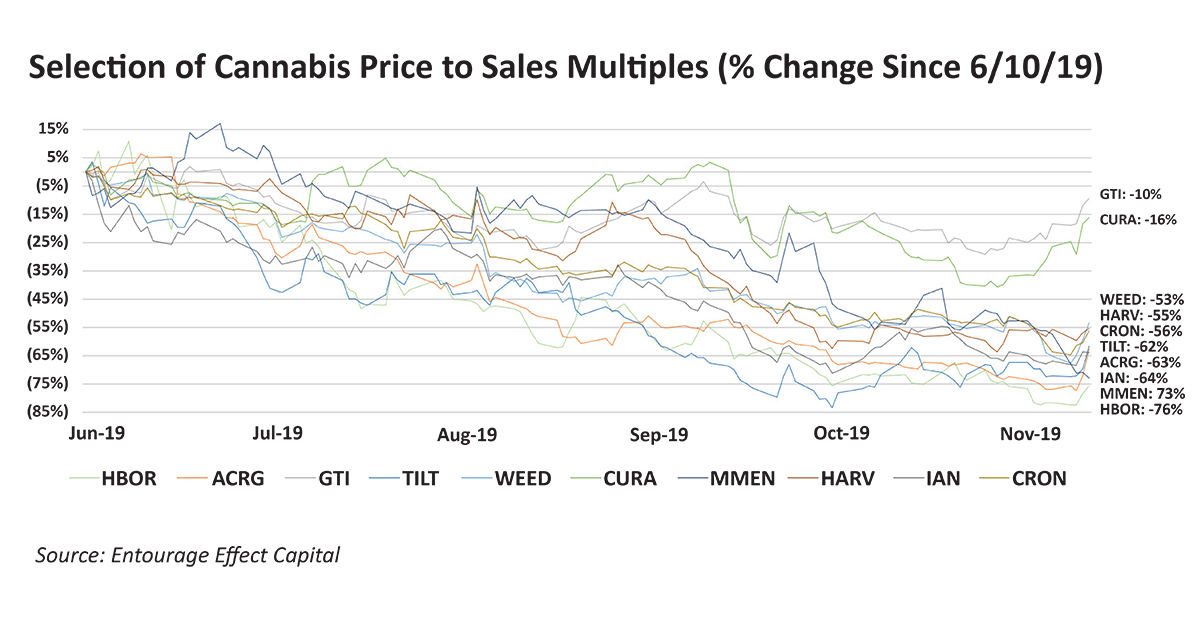
(Editor’s note: This story is part of a recurring series of commentaries from professionals connected to the cannabis industry. Aaron Salz is founder and principal at Stoic Advisory, a Toronto-based boutique corporate finance advisory firm focused on the global cannabis industry. Founded in 2016, Stoic has advised on more than $2.5 billion in cannabis M&A transactions and is an active principal investor and venture capitalist across the cannabis value chain.)
Everyone likes lists, so I decided to make one.
Here are my “Ten Commandments,” in no particular order, that I believe every startup – cannabis or not – should be aware of.
1. Have a clear problem-solution pitch.
Have a concise reason as to why your business should exist. Having a license in some jurisdiction or pointing to overused market-sizing data is no longer enough.
Slide One of your pitch deck needs a concise “hook” of what you’re doing that’s different, what niche you’re filling and what problem you’re solving.
2. Define and support the unit economics.
The easiest way to discredit yourself is a weak or nonexistent financial model.
You might not need more than a napkin model on Day One, but it needs to clearly lay out attractive and attainable unit economics.
Or, in other words, how will you make money per unit of the good/service you plan to sell?
Too often I see unrealistic financial projections driven from anecdotal data.
This won’t hold water today when investors are more jaded and discerning than ever before. Do your homework and invest in a proper financial model.
3. Don’t believe you have a better mousetrap before you’ve proven it.
I see far too many startups that believe they have the best “something” because they’ve proved it in a small sample size (friends) at a pilot scale (their garage).
Institutional investors won’t care and won’t believe you until its commercial, so don’t die on this sword.
4. Check your ego and raise money at an appropriate valuation.
Ignore where your competitors raised money.
It’s like looking at the Lamborghini in your neighbor’s driveway without knowing he’s on a third mortgage with Dog the Bounty Hunter after him for unpaid credit cards.
You’ll never have the full context, so swallow your pride and raise what you need, when you need it and at an appropriate valuation.
5. Creativity does not belong in the capital structure.
Simplicity is best when it comes to capital structures.
Nothing is worse than looking at an (equity ownership table) for a startup and seeing that it’s already a mess – typically from greedy decisions.
Keep it simple on Day One, as you can always be creative later, if need be.
6. Don’t give away too much to advisers early on.
While tempting, your startup doesn’t need a 10-person advisory board. In my experience, members of advisory boards rarely earn the shares they are given.
Think and treat your advisers more like employees. Have them earn their shares through milestones or targets – or, even better, have them invest as a condition of joining.
Don’t offer a free lunch before you can afford it.
7. If the money is there, take it.
This is the golden rule.
Don’t fool yourself into thinking demand for your round means the valuation was set too low. You just happen to be the shiniest object that day.
Take the money when it’s there, swallow the dilution and don’t look back.
8. Say no to bad investors.
While this might sound like having your cake and eating it, too, this is a warning about the really bad investors.
Be aware of two red flags in particular:
- They think they know your business better than you do at the first meeting.
- Their first question is about when the liquidity event is.
Short-term capital is its own worst enemy. Don’t fall victim to it, too.
9. Don’t rely on regulatory change.
This is the most dangerous pitfall in cannabis. Make sure your business works today and be prepared for the future – the good and bad.
Pitch regulatory tailwinds as “blue sky,” not the foundation of your venture.
10. Be generous with employee options.
You likely can’t afford market compensation, so make it up with equity.
Early employees need to feel like they have skin in the game to adequately participate and celebrate the upside.
Don’t be greedy as a founder. It’s a bad look. However, I do advise a cliff-vesting schedule to incentivize long-term commitment.
11. Bonus. Communicate with investors – and have patience.
Don’t keep investors in the dark.
Communicate formally at least quarterly, including the good and the bad, and send highlights of any material events that happen in between.
Be patient with the “dumb” questions and annoying requests. You want investors to feel part of the journey as it pays dividends later when you go back to the well.
Aaron Salz can be reached at info@stoicadvisory.com
The previous installment of this series is available here.
To be considered for publication as a guest columnist, please submit your request here by filling out our form.







